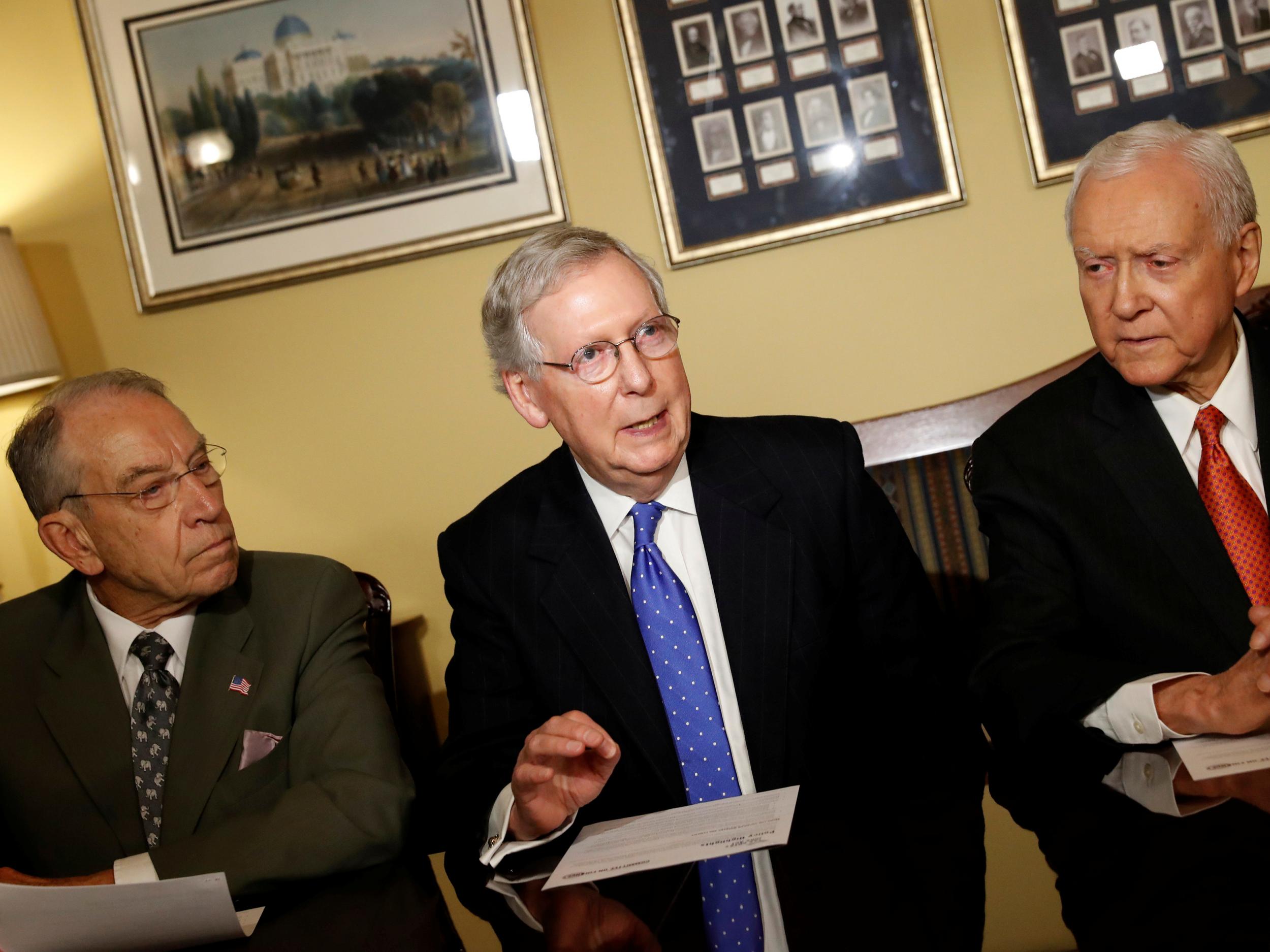Senate recess: Why does Congress get August off and why is this year's cancelled?
Congress has enjoyed an entire month off nearly every year since 1971

Mitch McConnell cancelled most of the Senate’s month long August recess, urging Republicans to stay in Washington and pass a government spending bill.
Senators will instead enjoy a vacation throughout the first week in August before returning to the capital for the rest of the month. The Senate majority leader said he decided to make the 2018 recess the shortest summer vacation in decades in part because many of the president’s nominees still need to be confirmed.
"Due to the historic obstruction by Senate Democrats of the President's nominees, and the goal of passing appropriations bills prior to the end of the fiscal year, the August recess has been cancelled," Mr McConnell said in June. "Senators should expect to remain in session in August to pass legislation, including appropriations bills, and to make additional progress on the president's nominees."
Why does Congress get a summer vacation?
The Senate officially established its August recess in 1971, after years of Congress enduring work schedules with extremely limited breaks.
In the 1800s, Congress convened throughout the winter for intensive meetings before being adjourned in the spring, when the heat would make it virtually impossible to continue working in the Senate chambers.
All that changed with modern air conditioning, which made it possible for senators to work in the capital year round. That forced Congress into an exhaustive work routine; for example, in 1963, the Senate worked throughout the entire year with its longest break being a three-day weekend.
The Senate voted on the Legislative Reorganisation Act in 1970, providing a month long recess for representatives to travel back to their home states.

What do elected officials do when they return home?
Typically, Congressional representatives return home during the August recess to host town halls with their constituents, meet with local party members and, of course, spend time with their families.
During a campaign season such as this one, officials often campaign for local representatives in their party and also host their own events. The August recess is seen as a crucial opportunity for members of Congress seeking re-election, since they can visit campaign offices, conduct local interviews and remind voters what they’ve been fighting for in Washington.
In recent years, protestors have organised massive demonstrations nationwide to welcome their elected representatives upon their return. Demonstrators showed up to countless town halls hosted by Republicans in their hometowns during last year’s recess, largely to protest against the GOP’s attempts to repeal the Affordable Care Act.
Not to be forgotten, the Senate website also claims representatives catch up on their “summer reading” while visiting their homes.
Is cancelling summer recess unprecedented?
This year will mark the most days the Senate and House were in session during a single year than the average since 1971, when the August recess was first established.
However, Democrats and Republicans alike have made scheduling changes to the August recess over the years in order to meet certain political goals.
Nancy Pelosi shortened the vacation for elected officials in 2010 by two days, calling on representatives to return to the capital and vote on a $26bn state aid bill. The interruption arrived in the midst of a midterm election season, spurring complaints from Republicans and other officials who were forced to cancel meetings with their constituents.
The Senate and House also delayed their August vacations until the last days of the month in 1994, while working to pass legislation on health care and crime.
How does this impact the potential government shutdown?
For starters, Mr McConnell cancelling the Senate recess likely benefits Republicans — who can temporarily stave off Donald Trump’s wrath.
One Republican senator who spoke anonymously to CNN said the move was done "totally out of fear of what Trump will do".
"The only reason this is being considered, the only reason, is that leadership is fearful that Trump will blast the Senate if they're not in session and therefore hurt Republican chances," the senator continued.
With members of Congress remaining in the capital ahead of the deadline to pass a government funding bill, it could perhaps be more likely that senators pass a funding bill with — at least somewhat — bipartisan support.
However, there are numerous variables causing significant backlash to the Republican Party’s spending goals for the coming year, from Mr Trump’s demands for US taxpayer money to build a wall, to further rollbacks of the Affordable Care Act. The GOP is also considering a variety of cuts to domestic funding, which have spurred blowback from Democrats.
David Perdue, a Georgia Republican senator who spoke to CNN about the recess cancellation, put it simply: "We have 278 nominees backed up now waiting for confirmation and we've got to get the government funded."
Join our commenting forum
Join thought-provoking conversations, follow other Independent readers and see their replies
Comments
Bookmark popover
Removed from bookmarks